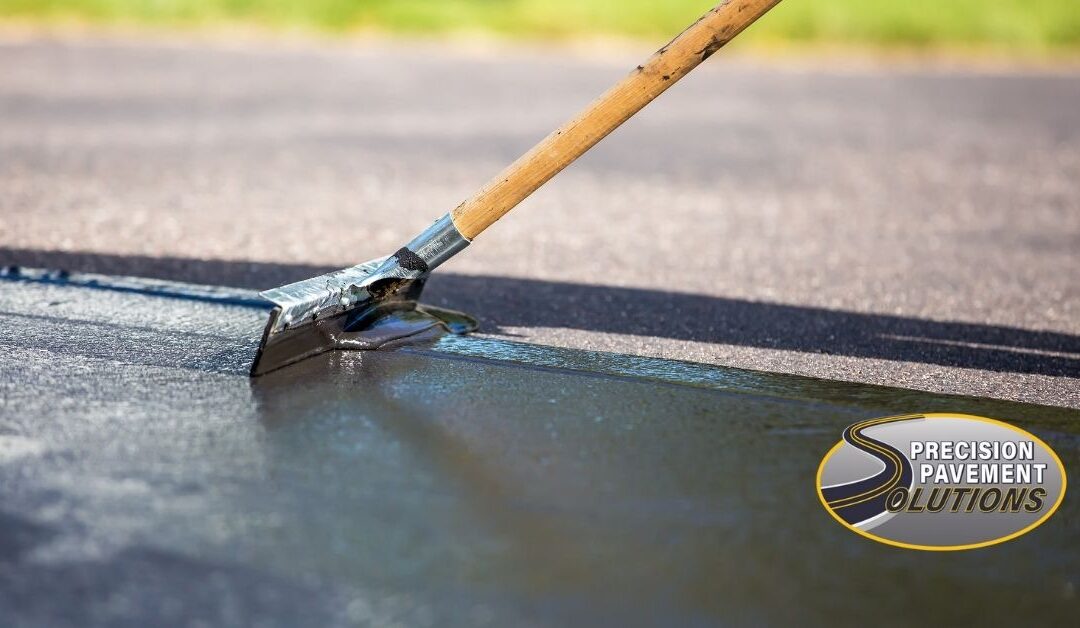Maintaining a driveway is crucial for ensuring its longevity and aesthetic appeal, but many homeowners often ask, How often should you sealcoat your driveway? Sealcoating is not just about improving the appearance; it’s a vital maintenance task that protects your driveway from various damaging factors. Understanding what sealcoating a driveway entails, how long sealcoating lasts, and how often to sealcoat driveway can save you significant time and money.
How often to sealcoat driveway? This guide will delve into expert tips for optimal maintenance, including factors like climate conditions, driveway usage, and the type of material, all of which influence the sealcoating frequency. Whether you’re curious about the sealcoating drying time, how long after sealcoating you can drive on it, or how much it costs to sealcoat a driveway, we’ve got the answers to help you make informed decisions for your home’s upkeep.
The Benefits of Sealcoating for Extending the Life of Your Driveway
Sealcoating is a critical procedure for maintaining your driveway in top condition. It involves the application of a protective layer that shields asphalt driveways from the elements, including UV rays, rain, and chemicals. What does sealcoating do? It extends the life of your driveway and enhances its appearance, giving it a fresh, new look.
- Prevents UV Damage: Blocks harmful UV rays that can degrade and fade asphalt.
- Moisture Barrier: Seals the surface to prevent water penetration that can cause cracks and potholes.
- Enhances Appearance: Restores the dark, rich color of the asphalt, improving the overall look of your property.
- Increases Durability: Extends the driveway’s lifespan by protecting against oil, gas, and salt.
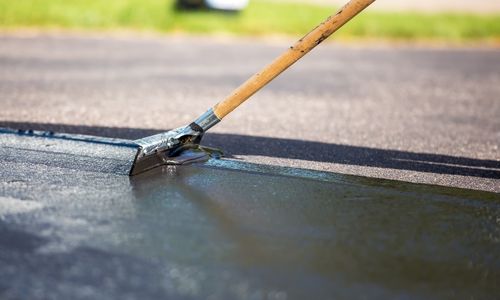
Factors Affecting Sealcoating Frequency
How often to sealcoat driveway? The frequency with which you should sealcoat your driveway depends on several factors. These include the climate conditions in your area, the traffic your driveway sees, and the material composition of your driveway itself. Each factor can alter the timeline, emphasizing the need for a customized sealcoating schedule based on specific circumstances.
Climate Conditions
The local climate plays a significant role in determining how often to sealcoat your driveway. In areas with extreme weather conditions, such as intense heat, heavy rain, or freezing temperatures, driveways may require more frequent sealcoating.
Driveway Usage
High-traffic driveways endure more wear and tear and might need more frequent sealcoating to prevent damage. Sealcoating parking lots, for example, is often done more frequently due to the heavy usage.
Material of the Driveway
Asphalt driveways typically need sealcoating every two to three years, while other materials might have different requirements based on their durability and exposure to elements.
Recommended Sealcoating Schedule
How often to sealcoat driveway? Generally, it is recommended to sealcoat your driveway every two to three years. However, this can vary based on the factors mentioned above. Keeping a regular schedule helps prevent severe damage and maintain the aesthetics of your driveway. In short:
Every 2-3 Years: Generally recommended for residential driveways under normal conditions.
- Annually: For heavily used or commercial driveways to prevent rapid deterioration.
- Adjust Based on Inspection: Regular assessments can help tailor the sealing schedule to specific needs.
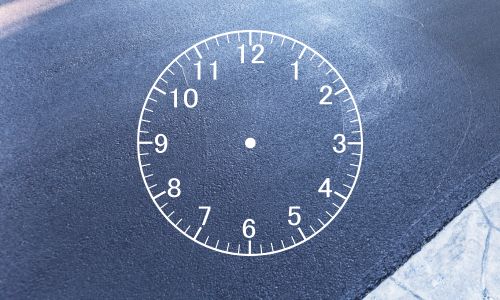
Signs It’s Time to Sealcoat
Recognizing the signs that it’s time to sealcoat can help you maintain your driveway effectively. Look for visual cues like cracks, potholes, fading color, and water pooling. These signs indicate that the asphalt’s protective layer is deteriorating, which could lead to more significant issues if not addressed promptly. Moreover:
Cracks and Potholes
Visible cracks and potholes are clear indicators that your driveway needs attention. Professional pavement service can fill small cracks and prevent them from expanding. Addressing these issues promptly can save you significant repair costs in the future.
Fading Pavement Color
If your driveway’s rich black color has turned gray, it’s a sign that the asphalt is wearing out and needs a fresh coat of sealant. Regular sealcoating restores the color and protects the asphalt from further degradation.
Water Pooling Issues
Standing water can seep into the pavement and cause damage over time, signaling the need for sealcoating. Properly applied sealcoating ensures a smoother surface that effectively repels water.
Frequent Repairs Needed
If you find yourself constantly patching your driveway, it might be more cost-effective to reseal it. Sealcoating can significantly reduce the frequency of repairs by protecting the pavement from the elements.
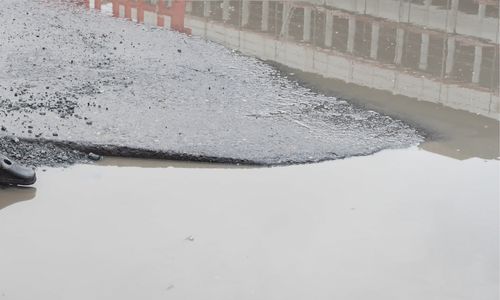
Loose Gravel on Surface
Loose gravel on the surface can indicate that the asphalt is breaking down and needs sealcoating. This can also pose a hazard to vehicles and pedestrians, making timely sealcoating crucial.
Rough Texture and Unevenness
An uneven surface or rough texture can increase the risk of vehicle accidents and damage. Sealcoating smooths out these irregularities, enhancing safety and drivability.
Oil Stains and Chemical Spills
These can degrade the asphalt more quickly. Sealcoating helps protect the driveway from such spills. Additionally, it makes the surface easier to clean and maintain.
Choosing the Right Sealcoating Material
Selecting the appropriate sealcoating material is crucial for ensuring the best protection and durability for your driveway. Options range from coal tar emulsion and asphalt emulsion sealers to oil-based and acrylic sealers. Each type has specific properties that suit different conditions and preferences.
Coal Tar Emulsion Sealers
This sealer is durable and resistant to water, oil, and UV rays, making it a popular choice for areas with variable weather conditions.
Asphalt Emulsion Sealers
These are environmentally friendly and provide a blacker finish but may not be as durable as coal tar.
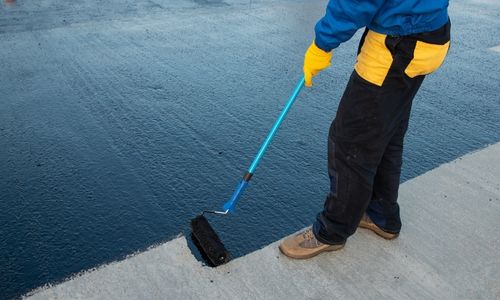
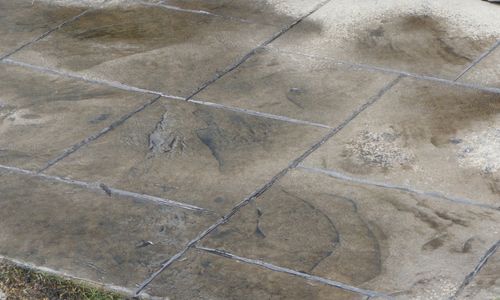
Oil-Based Sealers
Oil-based sealers are less common and are used primarily for reconditioning older driveways.
Acrylic Sealers
Acrylic sealers offer a variety of colors and provide excellent UV protection and durability.
DIY vs. Professional Sealcoating
Deciding whether to undertake a DIY project or hire a professional to sealcoat your driveway depends on several factors, including the size of the area to be sealed and your comfort with the application techniques. Professional sealcoating typically offers a more durable and evenly applied coating, especially for larger or more damaged driveways.
- DIY Benefits: Cost-effective for small areas; gives homeowners control over the timing and application.
- Professional Advantages: Higher quality materials, more durable application, and expert knowledge of problem areas.
- Considerations: The size of the driveway, personal expertise, and the extent of existing damage should influence the choice.
Maintenance Tips Between Sealcoating
Between sealcoating applications, maintaining your driveway through regular cleaning, immediate removal of oil spots, and prompt crack filling can extend the life of the sealcoat. These maintenance tips help protect the driveway surface and delay the need for frequent resealing, ensuring longevity and reduced repair costs. Regular cleaning, removing oil spots immediately, and filling cracks promptly can extend the life of your sealcoating. Avoiding heavy equipment on the driveway can also prevent premature wear.
- Regular Cleaning: Keeps the surface free of debris and chemicals that can degrade the sealant.
- Prompt Repairs: Address cracks and holes quickly to prevent water infiltration and further damage.
- Avoid Spills: Clean oil and other fluid leaks immediately to avoid softening and breaking down the asphalt.
Summary
Sealcoating is an essential maintenance task that can significantly extend the life of your driveway. Understanding how long sealcoating last, how often you should sealcoat your driveway, and how much it costs to sealcoat a driveway can help you plan and budget for this important home improvement task. Knowing how long after sealcoating you can drive on it and how long to wait after sealcoating the driveway before using it are crucial to ensuring the job’s durability.
FAQs on How Often to Sealcoat Driveway
How Long After Sealcoating Can You Drive on It?
You should avoid driving on your driveway for at least 24 to 48 hours after sealcoating to ensure the material sets properly and achieves maximum durability.
How Long Does Sealcoating Last?
Typically, sealcoating can last two to four years, depending on the climate, the material quality, and the vehicle traffic.
How Much Does It Cost to Sealcoat a Driveway?
The cost to sealcoat a driveway varies widely, typically ranging from $0.15 to $0.25 per square foot, depending on the driveway’s condition and the quality of materials used.
How Often Should You Sealcoat Your Driveway?
Most driveways benefit from being sealcoated every two to three years, but this can vary based on weather conditions and the level of traffic.
What Does Sealcoating Do?
Sealcoating provides a protective layer that helps extend the lifespan of your driveway by guarding against moisture, UV rays, and chemical damage while enhancing its appearance.

